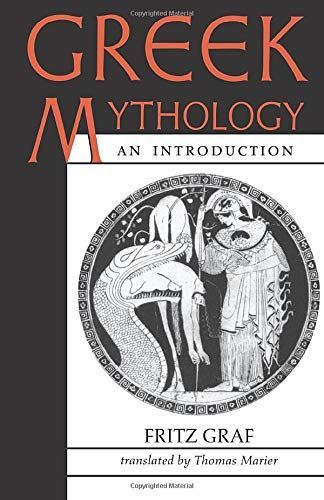
Greek Mythology An Introduction
Allegorists in ancient Greece attempted to find philosophical and physical truths in myth. Plato, who resolutely excluded myths from the sphere of truth, thought that they could express ideas in a realm he could not reach with dialectical reasoning. Freud built a science around the myth of Oedipus, saying that myths were "distorted wish dreams of entire nations, the dreams of early mankind." No body of myth has served more purposes - or been subject to more analysis - than Greek mythology. This is a revised translation of Fritz Graf's highly acclaimed introduction to Greek mythology, Griechische Mythologie: Eine Einfuhrung, originally published in 1985 by Artemis Verlag. Graf offers a chronological account of the principal Greek myths that appear in the surviving literary and artistic sources, and concurrently documents the history of interpretation of Greek mythology from the seventeenth century to the present. First surveying the various definitions of myth that have been advanced, Graf proceeds to look at the relationship between Greek myths and epic poetry; the absence of an "origin of man" myth in Creek mythology; and connection between particular myths and shrines or holy festivals; the harmony in Greek literature between myth and history; the use of myth in Greek song and tragedy; and the uses and interpretations of myth by philosophers and allegorists.